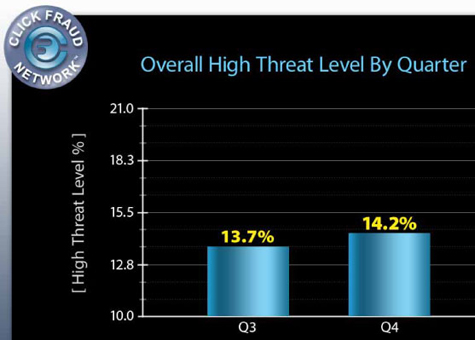Why Click Fraud is NOT case closed!

In the world of click fraud, what a difference eight months and a cross-country trip makes!
The SES New York City “Auditing Paid Listings & Click Fraud” panel yesterday was a collegial, mutually beneficial industry reaffirmation of how far EVERYONE has come in battling the scourge of click fraud which could, potentially, disrupt the future of the multi-billion dollar search advertising market.
The SES San Jose panel last August, in stark contrast, was a tumultuous affair, sparked by Google representative Shuman Ghosemajumder seemingly sabotaging fellow panelists with a surprise strategic unveiling of a Google engineers’ penned “Troubling findings on how some third parties detect click fraud" report, purporting to expose the “work of several click fraud consultants,” such as fellow panelists.
No such fireworks yesterday, however. In fact, while the panel brought together the click fraud point men from arch rivals Yahoo and Google, as well as third party PPC “spoiler” ClickForesnics, which seeks to pierce the “cloud of mystery over the entire pay per click process” on behalf of PPC advertisers, a we are all in this together atmosphere prevailed, on the surface.
SEE: Google to host Click Fraud day for advertisers and
Click Fraud: Yahoo wants audits!
With search engines touting a superior ROI value proposition of PPC spends to advertisers and providing free analytics and conversion tracking tools to clients to “prove” an inherent cost-effectiveness of online advertising over other options, is click fraud really a “non-issue” now?

I asked Tom Cuthbert, CEO, ClickForensics, during the Q & A, if search engines will succeed in disintermediating “accurate independent analysis” firms such as his own.
Cuthbert replied “No,” indicating that advertisers will not accept simply taking the publishers’ “word” that click fraud does not significantly impact them financially. Advertisers are commited to knowing that they “get what they pay for,” he underscored.
Google and Yahoo are nevertheless breathing a mutual sigh of relief that click fraud litigation is deemed to be "safely" behind them.
The leading search engines have apparently escaped potentially catastrophic economic, public relations and businesss model fall-out from the click fraud law suits they recently settled and both are now confidently reaching out to advertisers evangelizing the overall click “quality” they deliver to advertisers.
By changing the conversation from click fraud to click quality, both Google and Yahoo aim to mute advertiser click fraud concerns by extolling the higher general ROI they say is to be had from the “more accountable” online medium over traditional venues, such as television and radio.
Will advertisers really buy it though, literally?
Many search engine advertisers in the SES audience yesterday expressed frustration to both Yahoo and Google, indicating they do not feel they always know they are getting what they are paying for.
Will good, or even superior, search engine ROI really be a sufficient search engine click fraud “defense”?
Or, will search advertisers insist on knowing they ARE getting the clicks they pay for, on a click by click basis?
STAY TUNED, TO THS DIGITAL MARKETS BLOG!
ALSO: Google to host Click Fraud day for advertisers and Click Fraud: Yahoo wants audits!